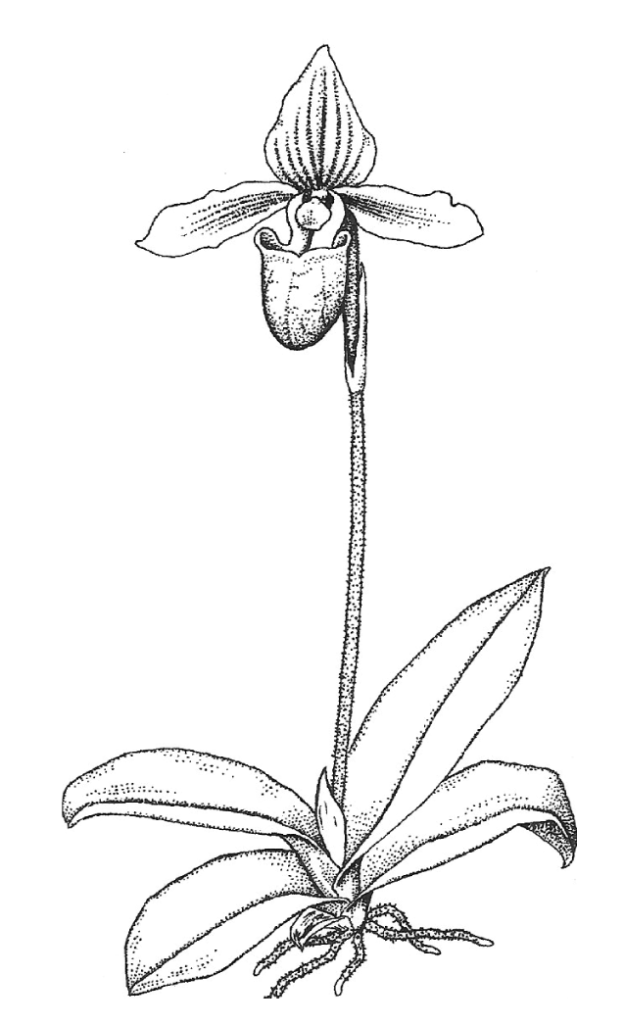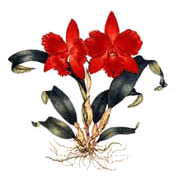Paphiopedilum
paff-ee-oh-PED-ih-lum

Paphiopedilums, the lady’s-slipper orchids, originate in the jungles of the Far East including Indonesia. They are semi terrestrial, growing in humus and other material on the forest floor, on cliffs in pockets of humus and occasionally in trees. They are easy to grow in the home, under lights or in the greenhouse.
Light
Is easier to provide for paphiopedilums than many other types of orchids.
They require shady conditions, as in the home in an east or west window, or near a shaded south window. In the greenhouse, shade must be provided. Give about
1,000 to 1,500 foot-candles. In the home, fluorescent lighting is excellent; suspend two or four tubes 6 to 12 inches above the leaves.
Temperature
For paphiopedilums cover a considerable range. Paphiopedilums are traditionally separated into two groups; the ward-growing mottled-leaved types and the
cool-growing green leaved types. Warm growing types should be kept at 60 to 65 F during the night, and 75 to 80 F during the day. However, many growers raise all plants in the same temperature range with excellent results. The plants can stand night temperatures in the 40s if necessary (as when grown outside in mild climates), as well as temperatures to 95F. Care must be taken to protect the plants from rot when cold (keep humidity low, and avoid moisture on leaves or in the crowns of the plants), and also to protect from burning when hot (shade more heavily and increase humidity and air movement around the plants).
Water
Must be available at the roots constantly, because all plants in this genus have no pseudobulbs. All of these plants need a moist medium – never soggy, but never dry. Water once or twice a week.
Humidity
For paphiopedilums should be moderate, between 40 and 50 percent, which can be maintained in the home by setting the plants on trays of gravel, partially filled with water, so that the plants never sit in water, or by placing a bowl of water next to the plant and allowing to evaporate.
Fertilizer
On a regular schedule, especially if the weather is warm, when the plants are most often growing. A good general rule is to apply a balanced (such as 20-20-20) water soluble fertilizer “weekly.”
That is, fertilize every week at one quarter of the recommended dilution.
Potting
Should be done about every two years, or as the medium decomposes. A mix of fine or medium grade fir bark with perlite (sponge rock) and sphagnum moss. Moisture retention with excellent drainage is needed. Large plants can be divided by pulling or cutting the fans of the leaves apart, into clumps of three to five growths. Smaller divisions will grow, but may not flower. Do not overpot; and average plant should have a 4 to 6 inch pot.
